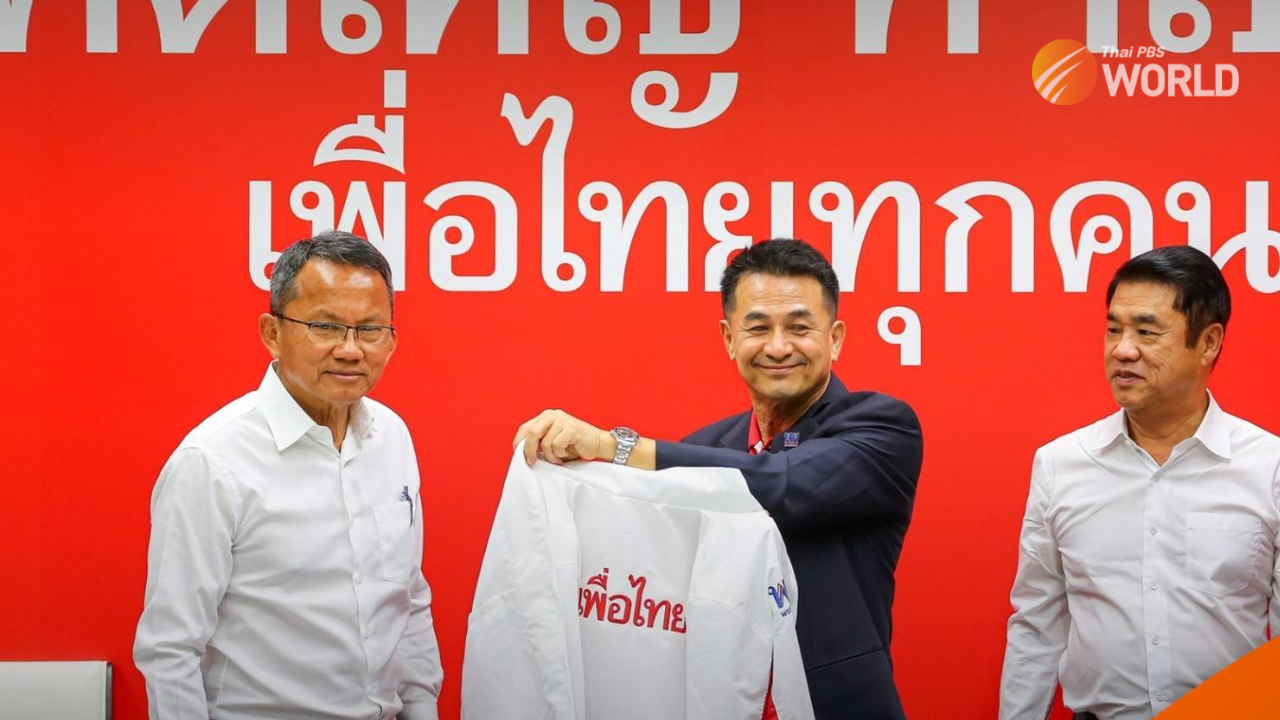
Political veterans Somsak Thepsuthin (left) and Suriya Juangroongruangkit (right) abandon Palang Pracharath to rejoin Pheu Thai, whose leader Chonlanan Srikaew is on hand to welcome them back.
One thing has made a strong comeback in this election season. That is the role of the so-called “Baan Yai” – roughly translated as “the big clans”.
They refer to members of the rich and powerful families that dominate politics at regional and provincial levels. Almost every major province, or group of provinces, has its own reigning political clan. And it’s widely known that together they form an integral part of the Thai political system.
Their role following the military coup in 2014 may have been overshadowed by thehigher-level politicking. But now that the familiar political environment is back in full swing, the role of these political clans has become most valuable for parties wanting to make substantial gains in rural constituencies.
That explains why all of a sudden, members of such political clans as “Kunpleum”, “Asawahem”, “Chomklin” and “Kanchana” – just to cite a few — are making headlines by either switching camps or reaffirming their current affiliations.
One thing is certain about all these moves — and there is nothing usual about them by the Thai political standard. That is, any party-jumping or political realignment at this juncture has nothing do with political ideologies. In the words of outgoing House Speaker Chuan Leekpai, they are driven purely by self-interest.

IL PRIMO ECOMMERCE SPECIALIZZATO IN DELIZIE AL TARTUFO E CAVIALE – CAVIAREAT.COM